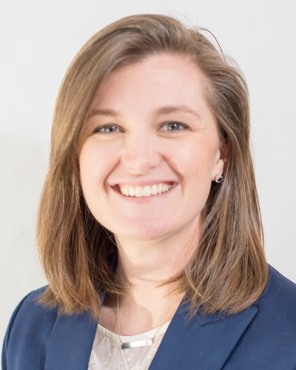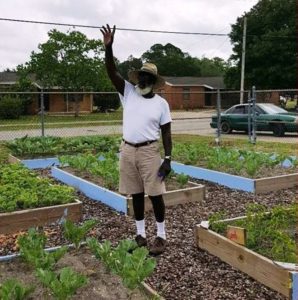This Guest Article for REVITALIZATION is by Becky Horace and Judi Weaver.
For many cartoon fans, the first image that might come to mind when hearing the term “brownfield” is a broken canister of green ooze that has the chemical properties to turn small turtles into crime fighting machines.
Teenage mutant ninja turtles aside, a brownfield site should actually be thought of as a great opportunity to enhance any community, and that is exactly what recently happened in Flagler County, Florida.
From Brownfields to Green Fields
A brownfield is a property that has the potential to be redeveloped, but there might be “real or perceived” contamination present at the site. Chances are, there are brownfield sites lurking in your community, you just have to know where to look.
Ask yourself this; do you have any old, abandoned mills or manufacturing sites, gas stations, car shops, dry cleaners, or have you seen any above ground storage tanks around town? If you do, don’t panic! Every community has them and there is a way to address the issue, through the U.S. Environmental Protection Agency‘s (EPA) Brownfield Program.
In 2012, the City of Bunnell, City of Palm Coast, and Flagler County, through the Flagler County Department of Economic Opportunity, formed a coalition called FEED (Flagler Economic Enhancement District), with hope of winning a Community-Wide Brownfield Assessment Grant to assist in their redevelopment efforts. In 2013, FEED was, in fact, the recipient of a $600,000 grant from this program.
Terracon was selected as the environmental consultant and assisted the coalition in selecting and assessing sites throughout the area which showed the greatest potential for redevelopment. More than 250 sites were identified as possibilities. Out of that list of properties, assessment activities were conducted on 93 individual parcels totaling 2,538 acres.
This assessment grant was considered a huge success and as a result, 64 new jobs, eight new businesses, and one new greenspace was created during the life of the grant.
Planting Seeds of Hope
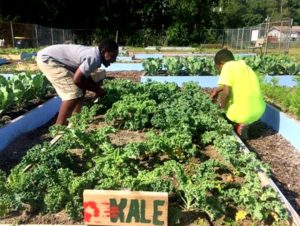 Although the creation of jobs and the addition of new businesses to the area is a grand accomplishment for this coalition, one of the biggest impacts of this project is the improvement in the quality of life for the community residents.
Although the creation of jobs and the addition of new businesses to the area is a grand accomplishment for this coalition, one of the biggest impacts of this project is the improvement in the quality of life for the community residents.
When determining sites for the assessment grant, one particular parcel owned by the Flagler County Public Housing Authority had considerable redevelopment potential.
The Housing Authority is responsible for several communities, the primary consisting of more than 500 residents of low-to-moderate-income living in 132 units and two additional, yet smaller communities, within walking distance. Terracon and FEED realized it would be beneficial to include this community as part of the grant-led health initiative.
Located at the heart of the community, this parcel was used to house above ground propane tanks situated on cradles. Several years prior to the grant, the tanks had been removed when the housing authority switched to natural gas, but the cradles remained, “creating a menacing site, reminiscent of a graveyard full of unmarked headstones,” as noted by several residents. Grant funds along with additional leveraging were used to assess the site for any possible contamination, remove the cradles, and prepare the site to make way for a community garden.
As part of the public health and monitoring component of the grant, a survey was conducted to gather health data on the residents of this low-income community. Fifty residents were surveyed about their current health and the availability of resources related to their health issues. The survey found the residents consider cost and transportation the largest barriers to success when working to improve their health. With this information, it was clear that something had to be done to improve the resident’s quality of life.
FEED and Terracon, worked with the Flagler County Public Housing Authority, Florida Department of Health in Flagler County, University of Florida Institute of Food and Agricultural Sciences, the Bunnell Community Health Center, and a number of other private and public individuals, community organizations, schools and businesses to create a program that would encourage healthy lifestyles through education, nutrition, and physical activity.
Over the next six months, classes were held on topics such as low sodium diets, diabetes, gardening, portion control, independent living, stress management, smoking cessation, getting kids to eat their fruits and vegetables, as well as two hands-on cooking classes. The creation of a walking group of residents encouraged walks three times a week for a minimum of two miles.
Education and physical activity are essential to healthy living, but success hinges on one’s understanding of basic nutrition. One of the most effective ways to teach basic nutrition and encourage healthy eating is to promote gardening. In addition to the classes and exercise activities held during those six months, the parcel at the heart of the community was transformed into the HOPE (Helping Others Provide Encouragement) Garden.
The HOPE Garden launched a community-wide initiative which included students, businesses, community groups and leaders all working together to build raised garden beds, plant seedlings, and cultivate a new lifestyle, ultimately changing the lives of many community members for the better.
Cultivating Life-long Change
After the six-month education phase, a closeout survey of the residents was conducted. They had a better understanding of what it meant to be in good health, and their daily intake of vegetables and fruits had increased. Due to the creation of a garden club, bylaws, and long-term management of the HOPE Garden, there was an overall increased interest in gardening and cooking.
The most significant testimony to the success of the HOPE Garden came from community volunteer, Rayfield Gilyard, a volunteer who helped to construct the raised garden beds and worked at the site daily.
“I noticed while working in the garden my sugar reading was going down to a safe range. I would check it in the morning and the reading was high, by the time I had worked in the garden for about a couple of hours it had dropped. Continually moving around helped a lot. I also lost some weight. Some people think that if you volunteer you’re working for nothing, but they are wrong. The exercise you get from gardening can help your blood pressure, stress, and a lot of other things,” says Rayfield.
The achievements of this coalition extend far beyond a garden in this targeted community. The lasting impacts can be seen with the local schools committing to provide germinated seeds for two growing seasons per year, due to the fact the grant funding would not allow for those expenses.
The excess produce is being sold to local Housing Authority residents at a discounted price with those profits going back into the community garden. Lastly, the ability to create a desire in private citizens to have smaller garden boxes at their homes for their families to enjoy is further confirmation of the program’s success.
“It was touching to have so many public and private organizations want to be involved. We had them calling us! We are so thankful for their participation. The HOPE Garden couldn’t have happened without them,” says Katrina Austin at the Flagler County Department of Economic Opportunity.
Success is not simply defined by streams of revenue. True success can be measured by the lasting changes you make in someone’s life and when a community comes together in support of such a worthy cause.
Not only has a brownfield site been remediated and redeveloped into a symbol of hope and unity for all who visit, it has also allowed for a shift in mindset that will positively impact future generations by promoting healthy living and by bringing a community together and engaging them at all levels, from preschoolers to professionals.
For more information on Terracon’s Brownfield Program, or this project, contact Belinda Richard, Terracon’s National Brownfield Program Manager at belinda.richard@terracon.com
About the Authors:
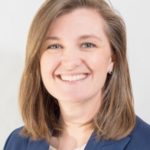 Becky Horace, MPA is a Grants Coordinator for Terracon’s Brownfields Program. With several years of municipal experience, she is able to provide a perspective and insight to developing a strategy focused on redevelopment efforts within a community; examples include innovative incorporation of parks and multiuse recreational trails while enhancing existing infrastructure.
Becky Horace, MPA is a Grants Coordinator for Terracon’s Brownfields Program. With several years of municipal experience, she is able to provide a perspective and insight to developing a strategy focused on redevelopment efforts within a community; examples include innovative incorporation of parks and multiuse recreational trails while enhancing existing infrastructure.
Her expertise in problem solving allows her the ability to create a funding source to meet the needs of the communities with whom she works.
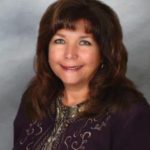 Judi Weaver is a Project Coordinator for Terracon’s Brownfields Program and she has 26 years’ professional experience in project management of government, non-profit, healthcare and regulatory agency assignments.
Judi Weaver is a Project Coordinator for Terracon’s Brownfields Program and she has 26 years’ professional experience in project management of government, non-profit, healthcare and regulatory agency assignments.
She brings unique talents to the organization which highlight community enhancement through planning, organization and implementation while supporting communities to meet their redevelopment goals.

